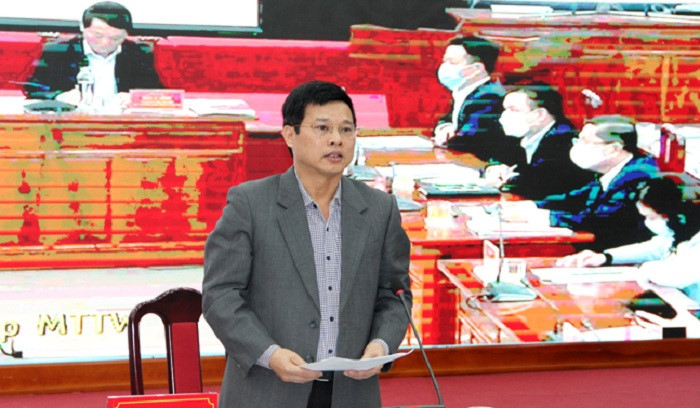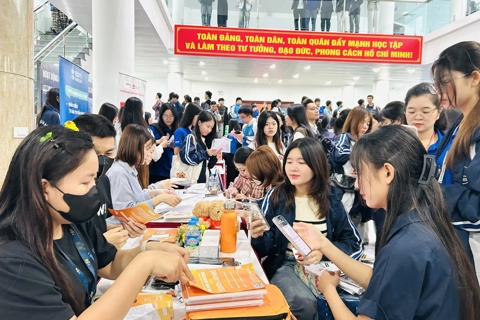Hanoi to spend US$149 million to aid 1.4 million people hit by pandemic
Hanoi’s authorities will try to disburse a part of the money to support people in need before April 30.
Hanoi’s government is about to spend more than VND3,500 billion (US$149 million) to support some 1.4 million vulnerable people directly affected by the Covid-19 pandemic, local media quoted Vice Chairman of the municipal People's Committee Ngo Van Quy as saying on April 28.
| Vice Chairman of the municipal People's Committee Ngo Van Quy speaks at the conference. Photo: HNM |
Quy said Hanoi’s authorities will try to disburse a part of the money to support people in need before April 30, including revolutionary contributors, social beneficiaries and poor people. In this tranche, the support is estimated to benefit about 414,000 people with a total budget of over VND500 billion (US$21,279).
For the speedy disbursement of the relief money, Minister of Labor, War Invalids and Social Affairs Dao Ngoc Dung has encouraged localities to use banking and online public services.
On April 24, Prime Minister Nguyen Xuan Phuc signed a decision to roll out a relief package worth VND62 trillion (US$2.7 billion) to support vulnerable people directly affected by the Covid-19 pandemic.
The package covers six beneficiary groups who would receive financial support in cash during three months starting April.
The funding for the package would come from state and provincial budgets, including savings from regular expenditures for meetings, workshops, abroad working trips, festivals and others.
In addition to direct financial support, workers are entitled for deferral in contribution for pensions and death gratuity funds in 12 months.
Workers could submit application for financial support via postal services, email, and fax, among others without having to seek certification from local authorities.











